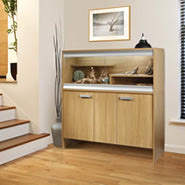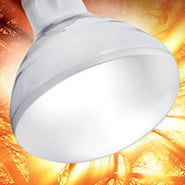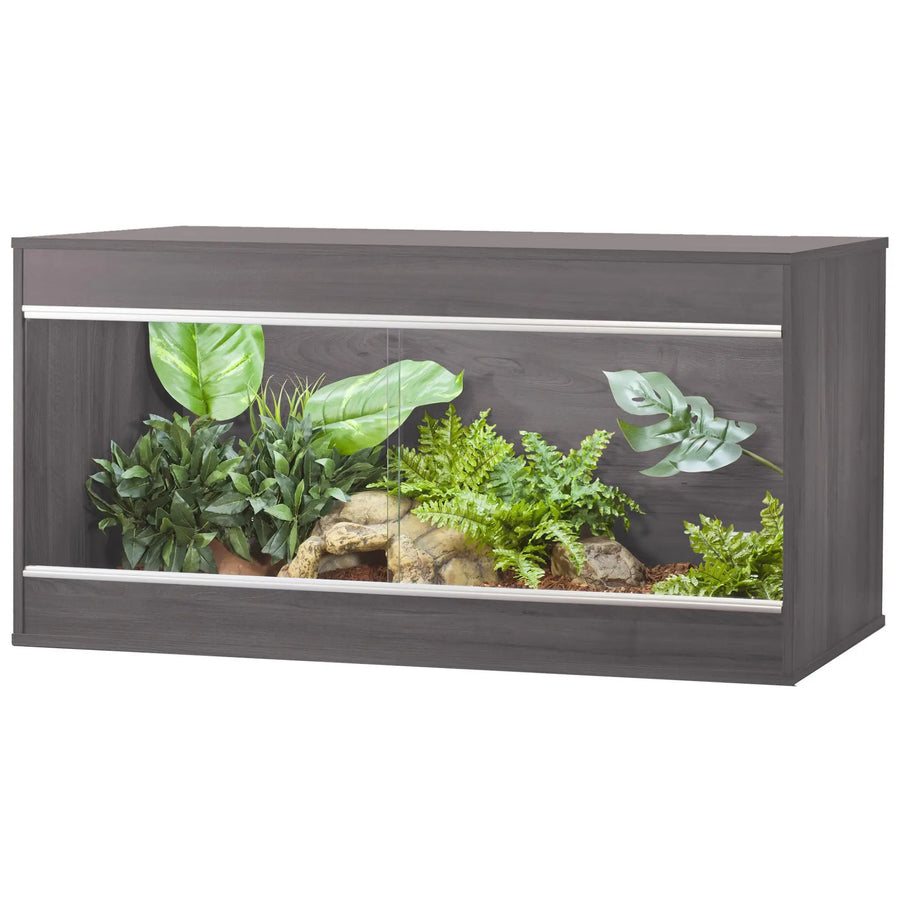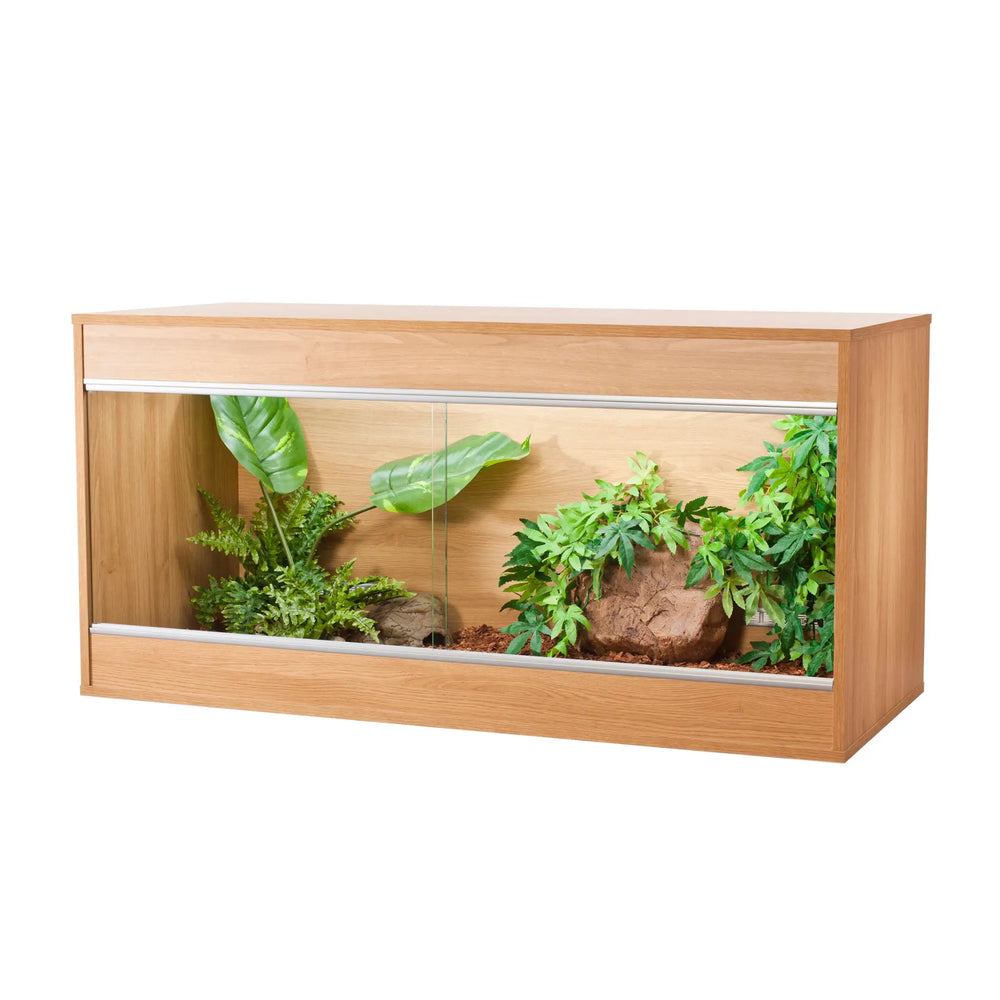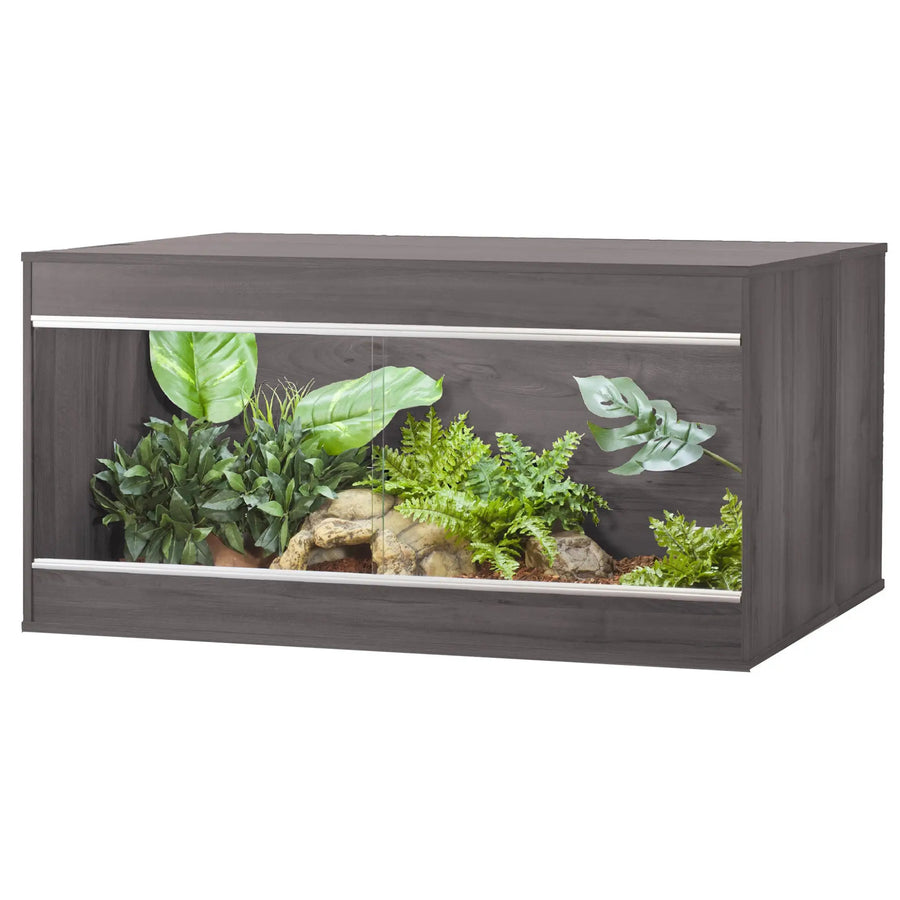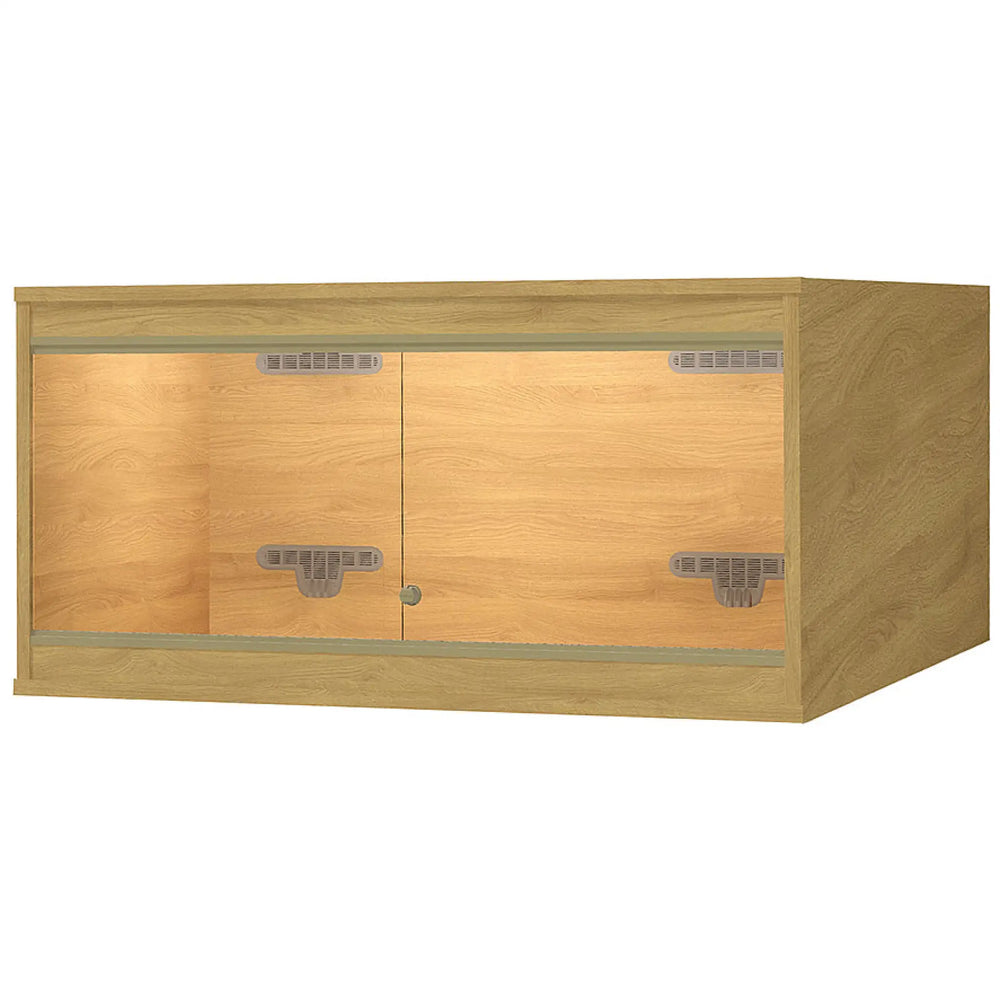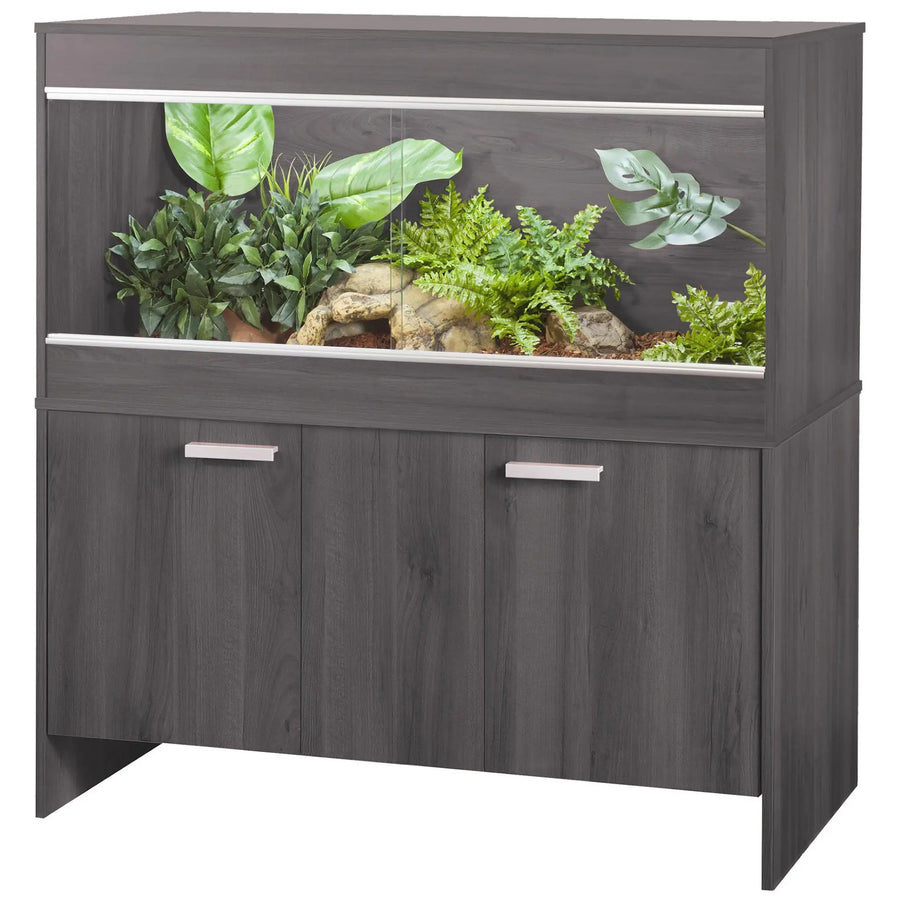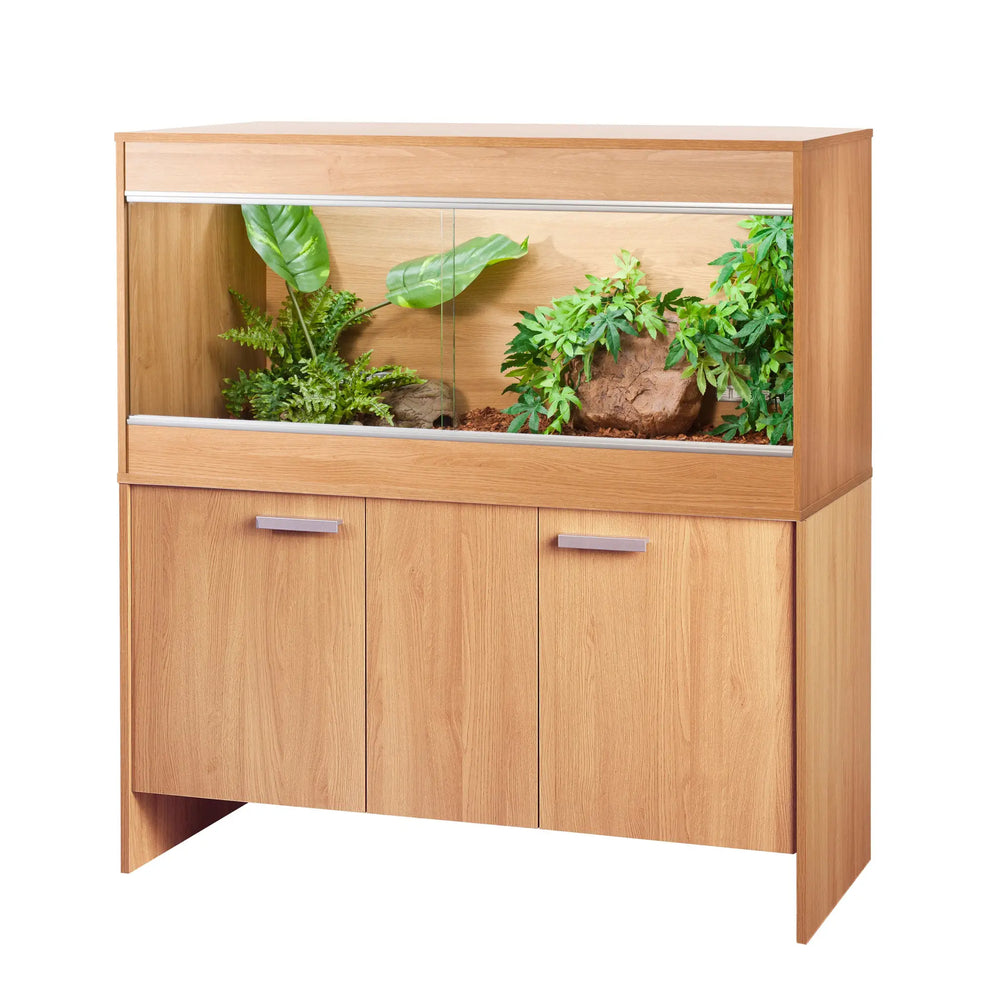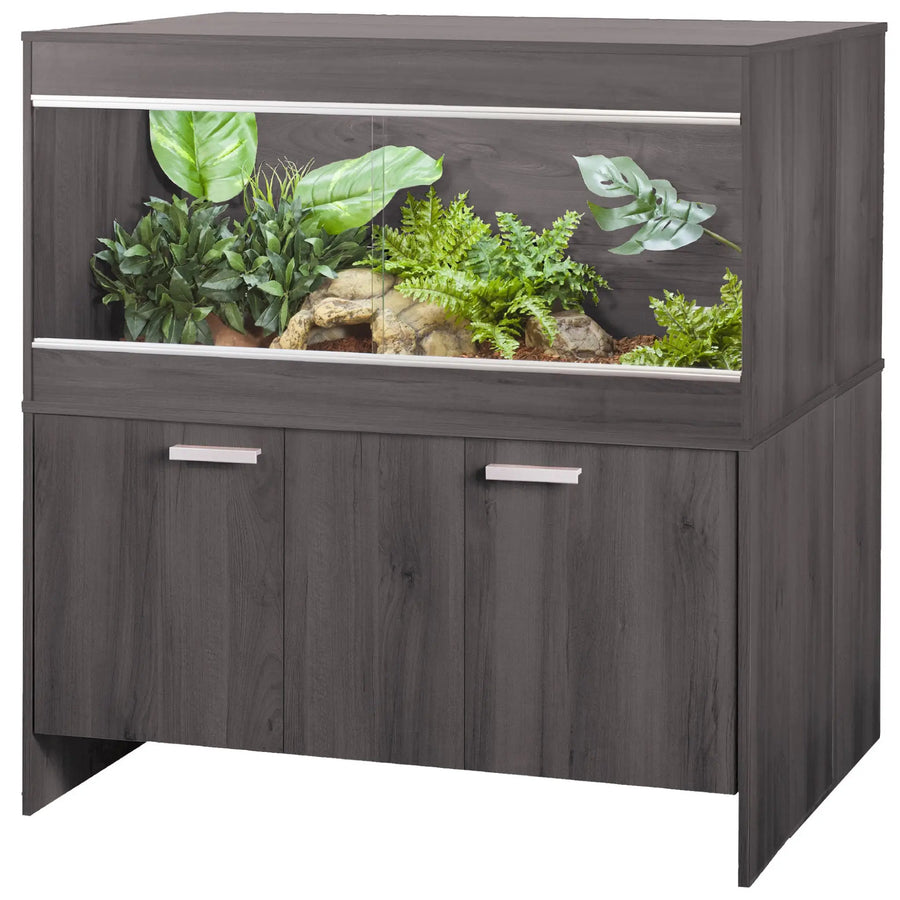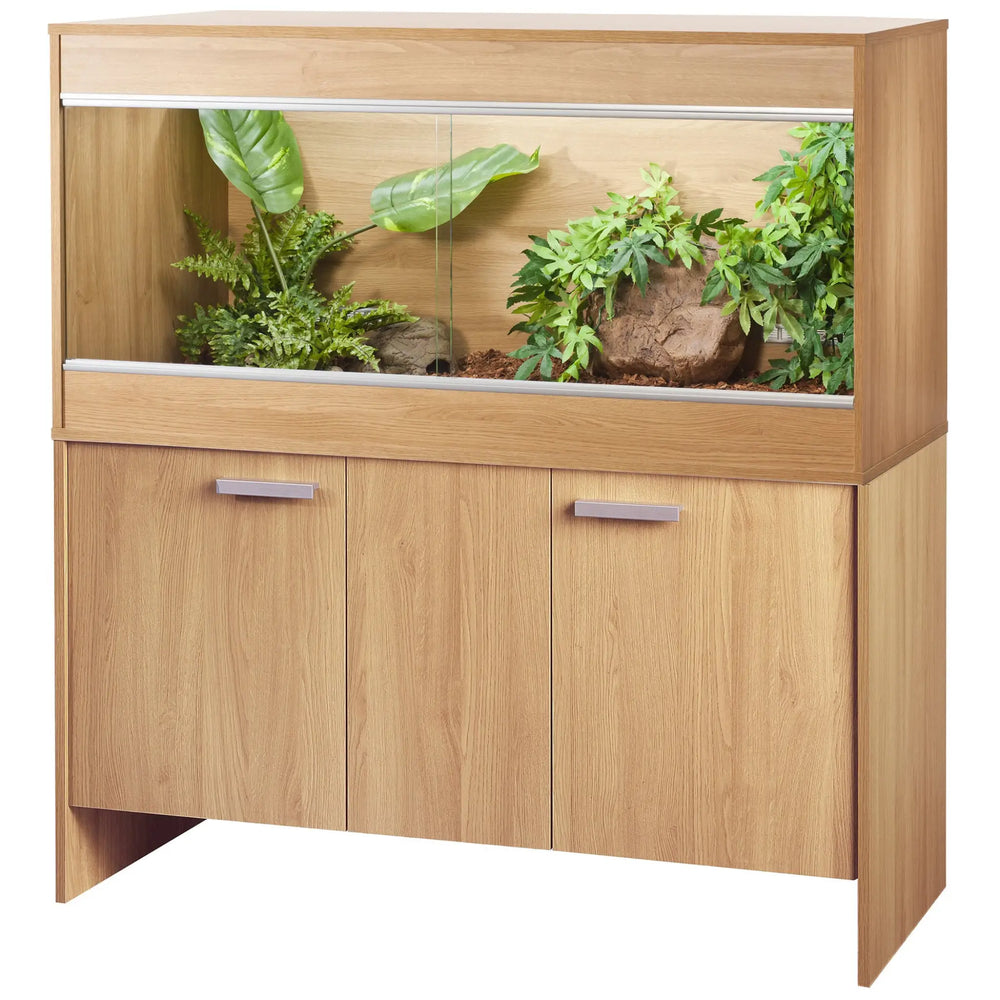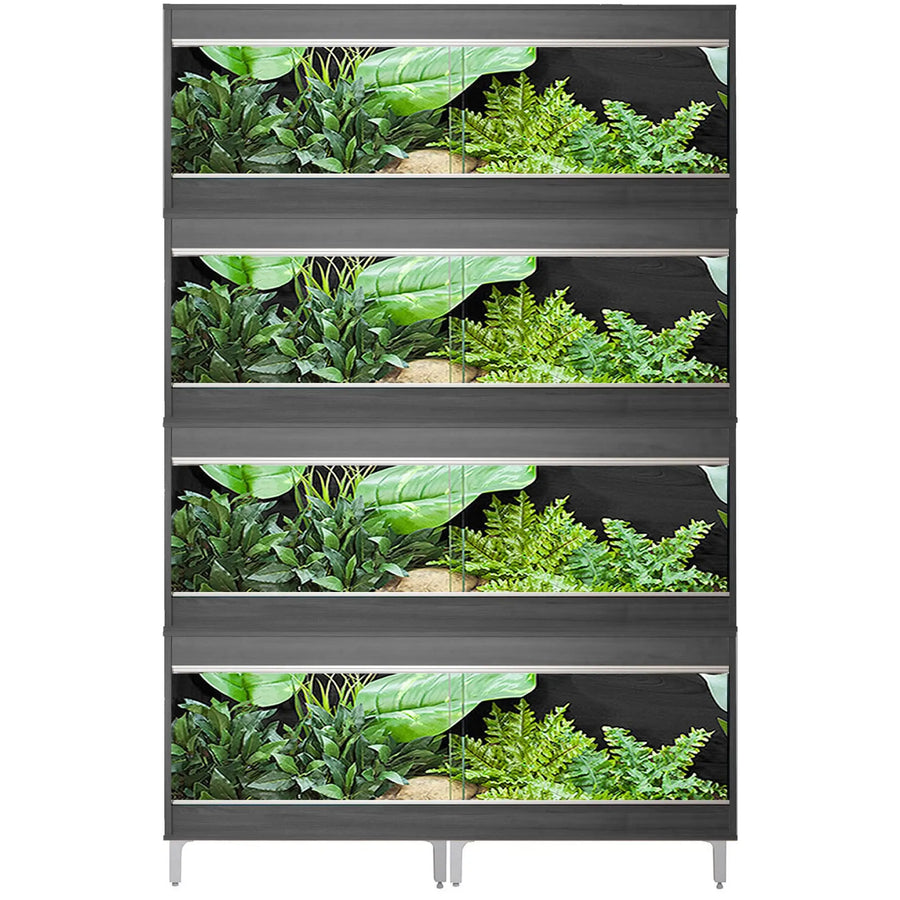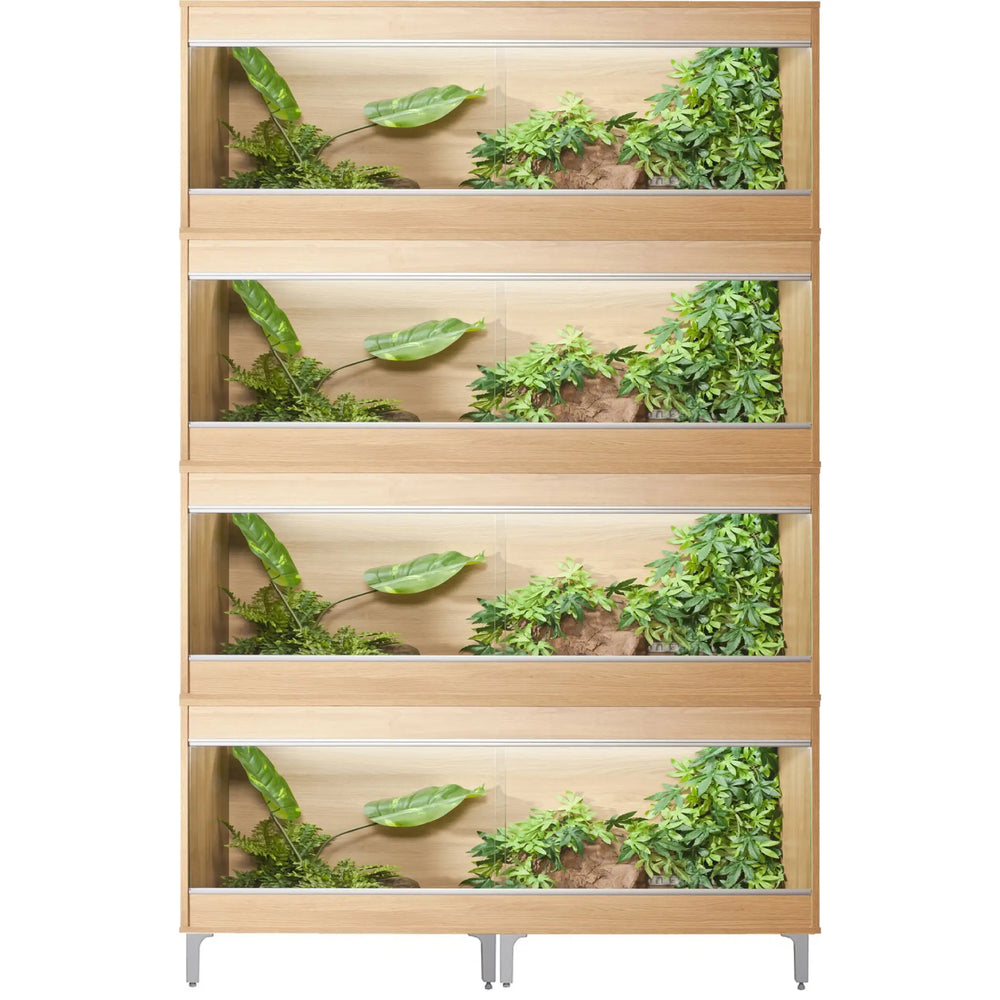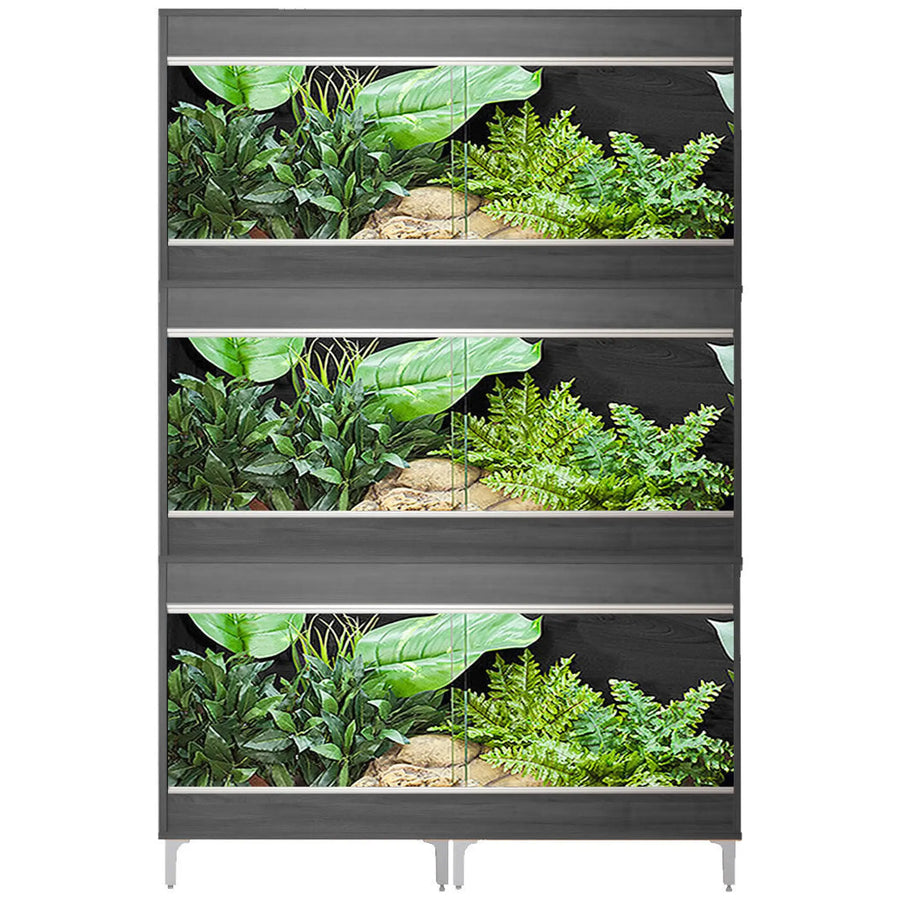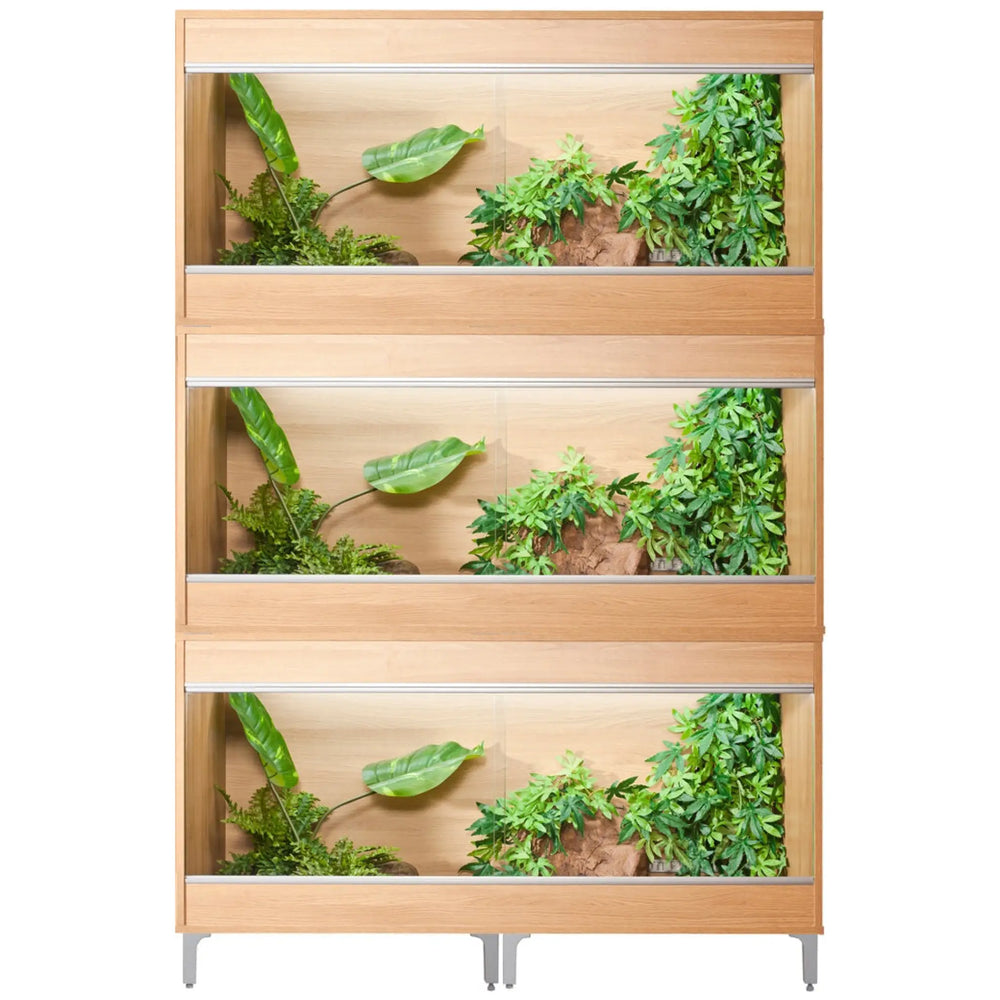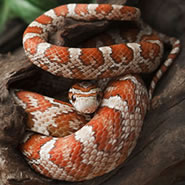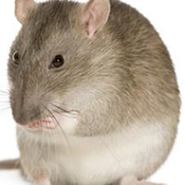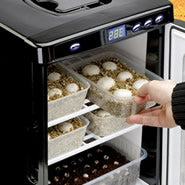Free Delivery
On order over £99*
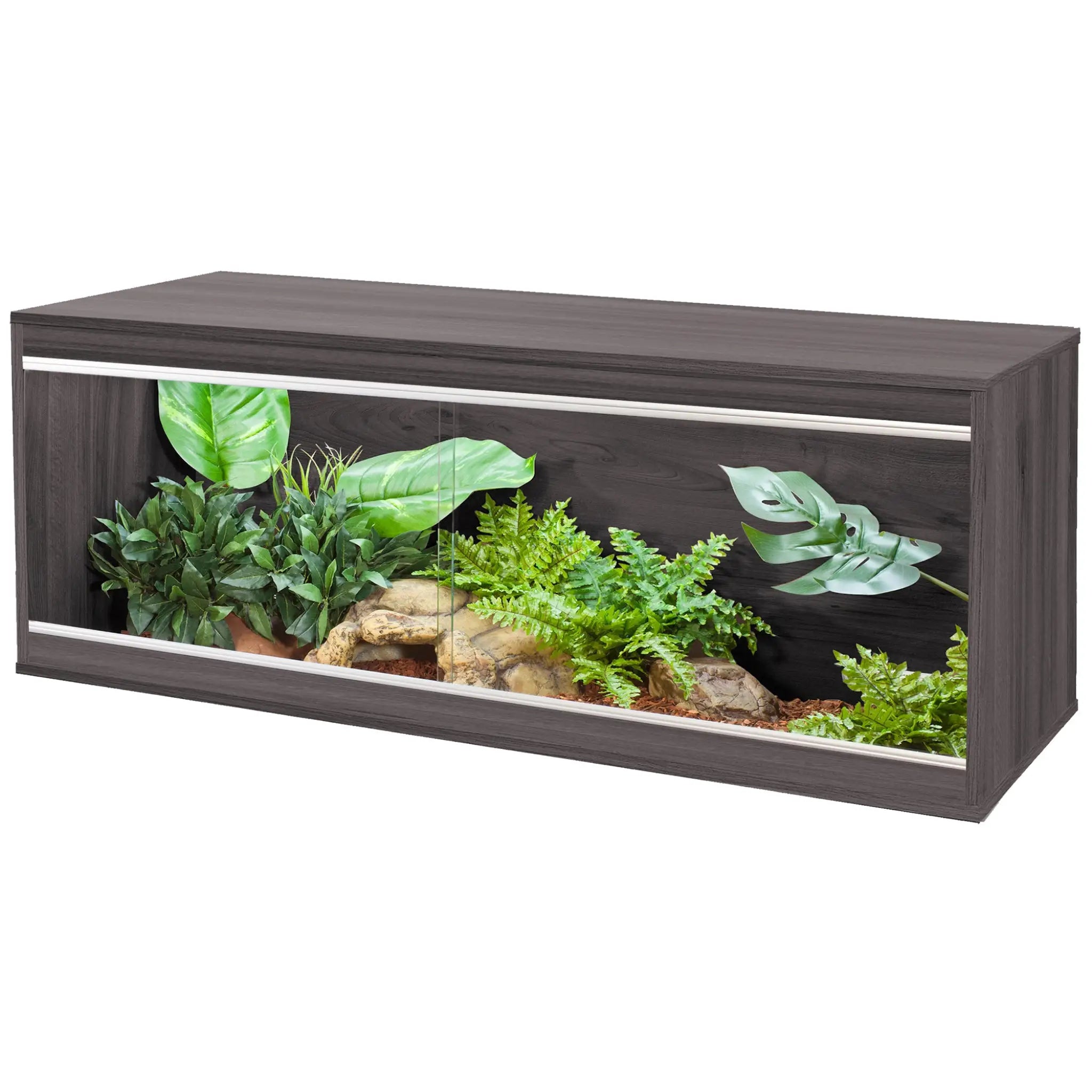


Housing: a wooden vivarium of at least 34" in length

Heating: basking temperature of 90oF, cool end of 75-80oF

Diet:carnivore with a diet comprising of frozen prey

Decoration:dry substrates and decor so not to raise humidity levels

A quick colubrid with interesting attitude. Great pet snakes with personality!
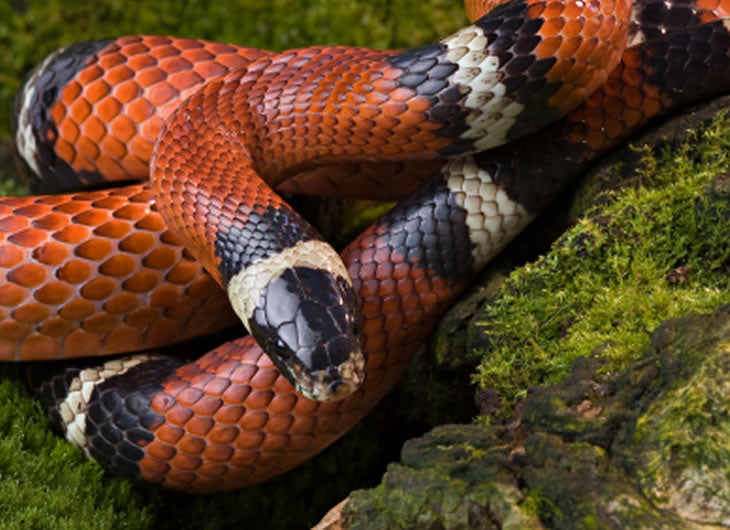
Milk snakes require a wooden vivarium as their enclosure. This is because wood is an excellent insulator of heat and so a wooden vivarium will make it easier to control the crucial temperatures required inside the habitat. Other enclosures such as glass terrariums are far too efficient at releasing heat. The wooden vivarium should have good ventilation to allow air flow in and out of the enclosure.
The milk snake's vivarium should be at least 860mm (34") in length. There are 2 main reasons for this; firstly milk snakes are not small reptiles and can easily grow to 1200mm in length. They require a proportionate amount of space to live happily. Secondly, the vivarium needs to have a sufficient length to allow for the creation of a temperature gradient. The enclosure needs to be warm at one end, but have enough distance for the temperature to drop at the cool end.
During the day, milk snakes require a warm basking area . This is achieved by using a clear spot bulb at one end of the vivarium. To accomplish the required basking temperature of 85oF- 90oF we use one 40w basking light in a 3ft enclosure.
At night milk snakes require a slight drop in temperature and total darkness. The basking light should be switched off. A night time temperature of 80oF is created by using a heat mat. These radiate heat but produce no light. The heat mat should always be controlled by a good quality thermostat. The thermostat will automatically turn heat mat on at night when the temperature in the vivarium drops. Temperatures should be monitored daily using a thermometer.
Milk snakes should be kept on a dry substrate to avoid humidity building up in the enclosure. Whilst any loose substrate has the potential to be accidentally swallowed, we have found this to not be a problem with coarse beech woodchips and that is what we keep our milk snakes on. It is also very easy to clean.
Whilst milk snakes are not an arboreal snakes, they do like to climb on top of things to survey their surroundings. The vivarium should be decorated with various pieces of wood to enable them to do this.
The milk snake vivarium can be decorated with artificial plants for a more natural look. A hiding spot at each end of the enclosure will allow the snake to move freely and thermoregulate without feeling insecure.
As hatchlings, milk snakes should be fed weekly on defrosted pinky mice, as the snake grows the food size should be increased until the snake is taking large mice or even jumbos. Adult milk snakes can be fed once every two weeks as they can become overweight if fed weekly.
A water bowl large enough for the snake to get in to should be provided on the cool end of the enclosure.
If you keep a male and female together, they may breed. You do not need to do anything to encourage this, providing they are healthy and the conditions are good, it will happen naturally. You need to consider whether you want this to happen. What will you do with the babies if you incubate the eggs?
A gravid female should have access to a nesting box to lay her eggs. The box should be large enough that she can fully turn-around inside it. We use moss to keep the box moist and humid.
The eggs should be incubated in an incubator at 84oF. We incubate our eggs in sealed boxes on a moisture rich substrate (such as Hatchrite) to trap the humidity around the eggs. After approximately 60 days the eggs will start to hatch, the first babies to emerge will encourage the rest of the eggs to hatch.
This is our 'How to set up a Corn Snake, Kingsnake & Milk Snake vivarium' video. We uploaded it to Youtube in 20010 and so far it has over 77,000 views!
It is a complete guide that will show you how we keep our corn snakes, king snakes and rat snakes at the Northampton Reptile Centre. It is based on our experiences accumulated over our 20 year history. This is the setup that makes the snake vivarium foolproof.
Sign up to the Reptile Centre newsletter so you don't miss out on all the latest offers and guides to give your pet the best they deserve


